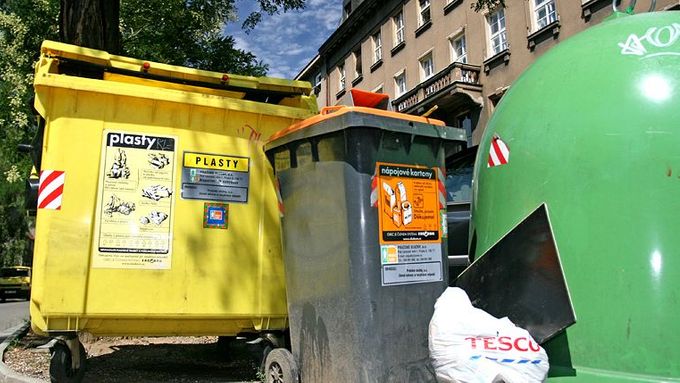
Prague - Czechs sort an increasing amount of plastic, glass, paper and metal waste every year. In 2007, they set a new record, getting close to the 50-kilo-per-head level, according to the latest statistics.
The EKO-KOM company, licensed to organize waste collection, sorting and recycling, says the number of people who reportedly sort their household waste continues to increase.
"Some 98% of the population has an opportunity to sort waste and 70% does," said EKO-KOM spokeswoman Šárka Nováková. On average, every Czech has to walk about 130 meters to reach the colored containers.
Meeting Brussels's pledge
The Czech Republic has no problems complying with its pledge to the EU. In 2007, the country was expected to sort and recycle 25% of empty PET bottles and other plastic packages thrown into the market. The actual figure was 52%.
The figures for paper and cardboard are equally favorable. The country was due to recycle 65% of paper waste but ended up recycling 95%. In the glass category, the Czech Republic only moderately exceeded its target: It recycled 68% of glass packaging last year, against the promised 67%.
Flaws in biowaste recycling
Despite the favourable figures, the Czech Republic has a lot to make up for in waste recycling. The impressive statistics of sorted plastic, glass, paper and metal waste still include only a small percentage of total household waste.
Households sort a negligible amount of organic materials, such as potato skin, and other materials from the kitchen or garden, which comprise the biggest portion of household waste. Most of this waste ends up in dustbins and then in massive dumps. Discarded electronics such as computers, cell phones and other appliances present a similar problem.
"Many campaigns focus on the collection of plastic, paper, and metal, but they together make up only about one-third of household waste. Vegetable waste accounts for half," Ivo Kropáček from the Friends of the Earth movement told Aktuálně.cz.
The organization is convinced that it is possible to improve the current system of collecting sorted plastic and glass. "You have dustbins in front of every house, but you usually have to walk a few blocks to get to the colored containers," says Kropáček.
Brussels wants tighter rules
The EU is planning to impose much stricter rules on waste recycling in the future. It proposes that every member country should recycle half of all communal waste and 70% of construction and demolition debris by 2020. And in four years, member countries will not be allowed to exceed 2008 waste levels.
If the European Parliament passes the new rules and EU country leaders give their approval, the Czech Republic will have to improve its waste sorting statistics significantly. On the whole, the Czech Republic recycles only 20% of household waste, while neighbouring Austria and Germany currently recycle 60%.
The Environment Ministry is planning a new bill to address waste. Under the legislation, municipalities will have to offer biowaste sorting to their citizens, adjacent to plastic and paper recycling.
Adapted and republished by the Prague Daily Monitor
